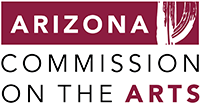February 2025, Volume 1, Issue 1
A story can shift the narrative, forcing the audience to embrace another perspective—one that may not have been considered yet. Perhaps the power of a story is best captured by those who have made a profession out of storytelling. Directors, writers, artists, and others use different mediums to convey a story, one that will compel […]
We use language to convey messages, concepts, and ideas. As researchers, we employ language in the scholarly pursuit of broadening our collective knowledge, usually in the form of scientific papers. However, this pathway of knowledge sharing is limited in its scope, outreach, and public accessibility. Consider the potential if we were to utilize language differently.
I was encouraged to write this editorial because we, the editors at BGH, are not only global health researchers, but women of color with distinct backgrounds and experiences, and mothers. We have all had our own struggles working in this field of which 70% of leadership roles are held by men but the work is predominantly carried out by women. We are also further penalized in the workforce once we become mothers. How do we move beyond this?
I see poetry as a vehicle that not only challenges the way I see the world, but that offers a glimpse into the reality and lived experiences of others. Recently, I came across this paper by a Kuwaiti-Palestinian scholar, Shahd Alshammari, who uses autoethnography to center her experiences living with MS, her grandmother’s fight with breast cancer, and intergenerational trauma as cultural references to understanding how Palestinians view resilience and disability. Here is a poem by this author that I wanted to share called "A poem for Teta".


©2024. Made with (❤︎) in Yachayninchik